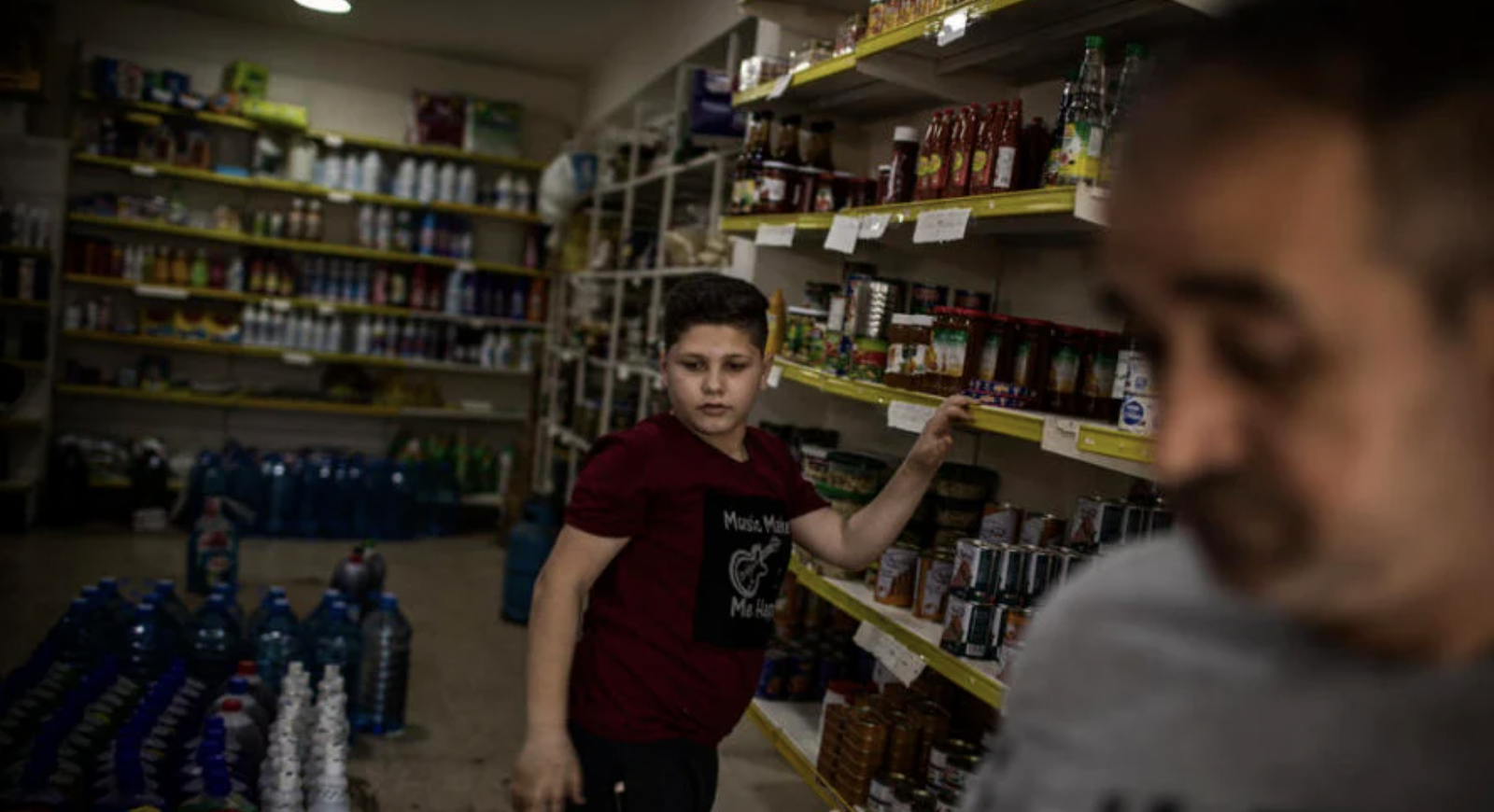
Q&A: “International solidarity has never been more
important than now”
UNHCR, 25 March 2021
Jakob Århem, Public Health Officer with UNHCR in Lebanon, explains how the COVID-19 pandemic is affecting refugees in the country, and underlines why refugee inclusion in national vaccination plans is so important.
UNHCR, the UN Refugee Agency, is working to ensure that refugees are protected from COVID-19 by being covered by national vaccination plans. In Lebanon – a major refugee-hosting country with around 865,000 registered Syrian refugees – the Government has granted refugees the same right to access healthcare and vaccines as locals. Jakob Århem, UNHCR’s Public Health Officer in the country, explains why including refugees in these efforts is important in order to end the pandemic.
How has the COVID-19 pandemic impacted refugees in Lebanon?
“Life for refugees and Lebanese nationals alike was difficult already before the pandemic started. Prior to COVID-19, Lebanon had descended into domestic turmoil and a deep economic slump. There were frequent protests and much of the country’s internal infrastructure was affected.
The first outbreak of C-19 in Lebanon was very contained, but at a high cost. During the spring of 2020, the Government implemented strict measures, including lockdowns and curfews. Compounded by an already difficult financial situation, many businesses closed and work opportunities disappeared.
Although refugees have not been as badly hit by the COVID-19 virus as initially feared, they have been severely affected by the economic consequences that followed Many refugees have lost their jobs and livelihoods during the pandemic.”
What does access to COVID-19 testing look like for refugees?
“In Lebanon, refugees have the same right to access healthcare as Lebanese nationals. The challenge – for both refugees and Lebanese citizens – is the high cost of healthcare in the country, especially hospital care. Lebanese citizens are often covered by insurance schemes, and otherwise receive support from the Government to partially cover hospital care. However, refugees are rarely insured and are not covered by the Government, and therefore receive support from UNHCR.
There are several ways to be tested for C-19 here, but there is often a fee involved. UNHCR has a programme, specifically targeting refugees, that performs the test for free in cases where the refugee has symptoms or has been in recent contact with someone who was confirmed infected.
One of the advantages for the Syrian refugees in Lebanon, compared with refugees in many other parts of the world, is that most speak the local language and live in residential areas alongside locals; this means they can typically access the same information as the host population.”
Will refugees in Lebanon have access to vaccines?
“The Lebanese Government has stated that all people living in Lebanon will be part of the national vaccination plan. This includes Syrian refugees, Palestinian refugees, and smaller groups of people who have been forced to flee. Everyone will get the same vaccines at the same sites – there will not be a parallel campaign for refugees.
From a public health perspective, it is vital to include refugees in the national vaccination programme, because it is necessary for as many people as possible to be vaccinated in order to stop the spread of COVID-19. This pandemic concerns everyone. If it is not dealt with in places like Lebanon, the risk increases of the virus mutating, pushing the end of the pandemic further into the future.”
What will UNHCR do to facilitate refugees’ access to vaccines?
“UNHCR will be directly involved in communicating with the refugee population through our outreach volunteers, direct WhatsApp messaging, and other channels. The campaign has already started, with health workers, individuals over 75, and some other vulnerable groups specifically targeted. The idea is for refugees, as for anyone else, to register online and then receive a text message with information on how to receive the vaccine.
Since the onset of the pandemic, UNHCR has been supporting the Lebanese healthcare system to facilitate access to healthcare for refugees. This includes contributing with medical materials, such as hospital beds, ventilators, and high-flow oxygen delivery machines. UNHCR has also been part of setting up temporary COVID-19 wards beside some hospitals. UNHCR is likely to provide further logistical support to the vaccination campaign once larger population groups are targeted.”
What is the biggest challenge for refugees in Lebanon currently?
“The majority of refugees we support in Lebanon are from Syria, and we are acutely aware that the crisis in Syria is in its tenth year. From having been at the centre of the world’s attention, the conflict in Syria and the situation for Syrian refugees are continuously receiving less attention and less support. There is considerable donor fatigue, especially as we see that countries are becoming more focused on their domestic situation in the context of COVID-19. The refugees are still here, the epidemic is not yet over, and the economic situation is becoming ever more dire. Every year, we have less money to spend on a situation that keeps getting worse.
The outcome of the pandemic and the way it is being dealt with across the world concerns us all. We cannot have a situation where each country fends for itself. International solidarity has never been more important than now.”
Original article here.
This article was written by Nannie Sköld.